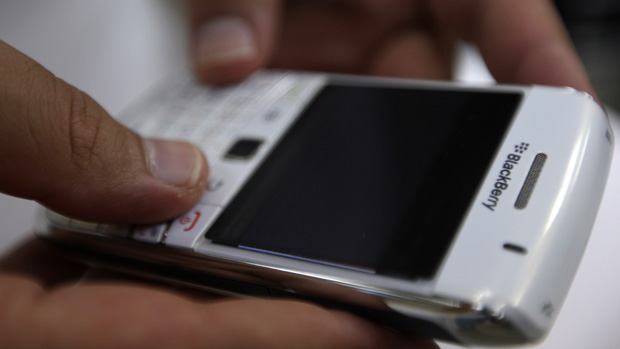NSA spied on Britons as it reaped 200m text messages a day
GCHQ made use of massive text database collected by 'Dishfire' program, according to latest Snowden leaks

A free daily email with the biggest news stories of the day – and the best features from TheWeek.com
You are now subscribed
Your newsletter sign-up was successful
PRESIDENT OBAMA is under increased pressure to curb NSA surveillance after it was revealed today that the US intelligence agency has been collecting 200 million text messages a day from across the globe.
The text messages, which are gathered by a program codenamed 'Dishfire', are used to identify people's travel plans, contact books, financial transactions and more.
Dishfire does not discriminate between the messages sent by those under surveillance and people who are under no suspicion of illegal activity. It "sweeps up pretty much everything it can", The Guardian reports.
The Week
Escape your echo chamber. Get the facts behind the news, plus analysis from multiple perspectives.

Sign up for The Week's Free Newsletters
From our morning news briefing to a weekly Good News Newsletter, get the best of The Week delivered directly to your inbox.
From our morning news briefing to a weekly Good News Newsletter, get the best of The Week delivered directly to your inbox.
The latest revelations about NSA mass surveillance - which are based on documents leaked by Edward Snowden and reported by the Guardian and Channel 4 News - come at an awkward time for the US government. President Obama will today announce his response to a White House review of the agency's practices which will "aim to restore public confidence in the intelligence community", the BBC says.
That job has been made even harder by today's revelations that the NSA engaged in the "untargeted collection and storage of text messages", including details of the recipients.
There will be discomfort in Whitehall too because the Snowden documents reveal that Britain's spy agency, GCHQ, made use of the Dishfire database. UK agents searched the metadata of "untargeted and unwarranted" communications belonging to people in the UK, the Guardian says.
Text messages collected by Dishfire were analysed by a second program known as Prefer, the Guardian says. It uses automated text messages such as missed call alerts or texts sent with international roaming charges to extract information, which the NSA describes as "content-derived metadata". An NSA document explains that "such gems are not in current metadata stores and would enhance current analytics".
A free daily email with the biggest news stories of the day – and the best features from TheWeek.com
The Dishfire revelations will make President Obama's efforts to assuage public fears about surveillance considerably more difficult, says the BBC. As part of today's announcement the president is expected to install a public advocate at the secretive court that approves intelligence collection. At present, only the US government is represented at the Foreign Intelligence Surveillance Court (FISC).
The BBC says Obama is not expected to endorse one of the panel's headline recommendations - moving the storage of phone records from the NSA to the telecommunications company or a third party where it can be queried under limited conditions.
The BBC's North American editor Mark Mardell says Obama is unlikely to satisfy either the intelligence community or critics of mass surveillance. "As so often, [President Obama's] liberal instincts may be at war with his perceived duty as commander in chief - and he may be doomed to disappoint many on both sides of the debate," he writes.
-
 The problem with diagnosing profound autism
The problem with diagnosing profound autismThe Explainer Experts are reconsidering the idea of autism as a spectrum, which could impact diagnoses and policy making for the condition
-
 What are the best investments for beginners?
What are the best investments for beginners?The Explainer Stocks and ETFs and bonds, oh my
-
 What to know before filing your own taxes for the first time
What to know before filing your own taxes for the first timethe explainer Tackle this financial milestone with confidence
-
 Epstein files topple law CEO, roil UK government
Epstein files topple law CEO, roil UK governmentSpeed Read Peter Mandelson, Britain’s former ambassador to the US, is caught up in the scandal
-
 Iran and US prepare to meet after skirmishes
Iran and US prepare to meet after skirmishesSpeed Read The incident comes amid heightened tensions in the Middle East
-
 Israel retrieves final hostage’s body from Gaza
Israel retrieves final hostage’s body from GazaSpeed Read The 24-year-old police officer was killed during the initial Hamas attack
-
 China’s Xi targets top general in growing purge
China’s Xi targets top general in growing purgeSpeed Read Zhang Youxia is being investigated over ‘grave violations’ of the law
-
 Panama and Canada are negotiating over a crucial copper mine
Panama and Canada are negotiating over a crucial copper mineIn the Spotlight Panama is set to make a final decision on the mine this summer
-
 Why Greenland’s natural resources are nearly impossible to mine
Why Greenland’s natural resources are nearly impossible to mineThe Explainer The country’s natural landscape makes the task extremely difficult
-
 Iran cuts internet as protests escalate
Iran cuts internet as protests escalateSpeed Reada Government buildings across the country have been set on fire
-
 US nabs ‘shadow’ tanker claimed by Russia
US nabs ‘shadow’ tanker claimed by RussiaSpeed Read The ship was one of two vessels seized by the US military